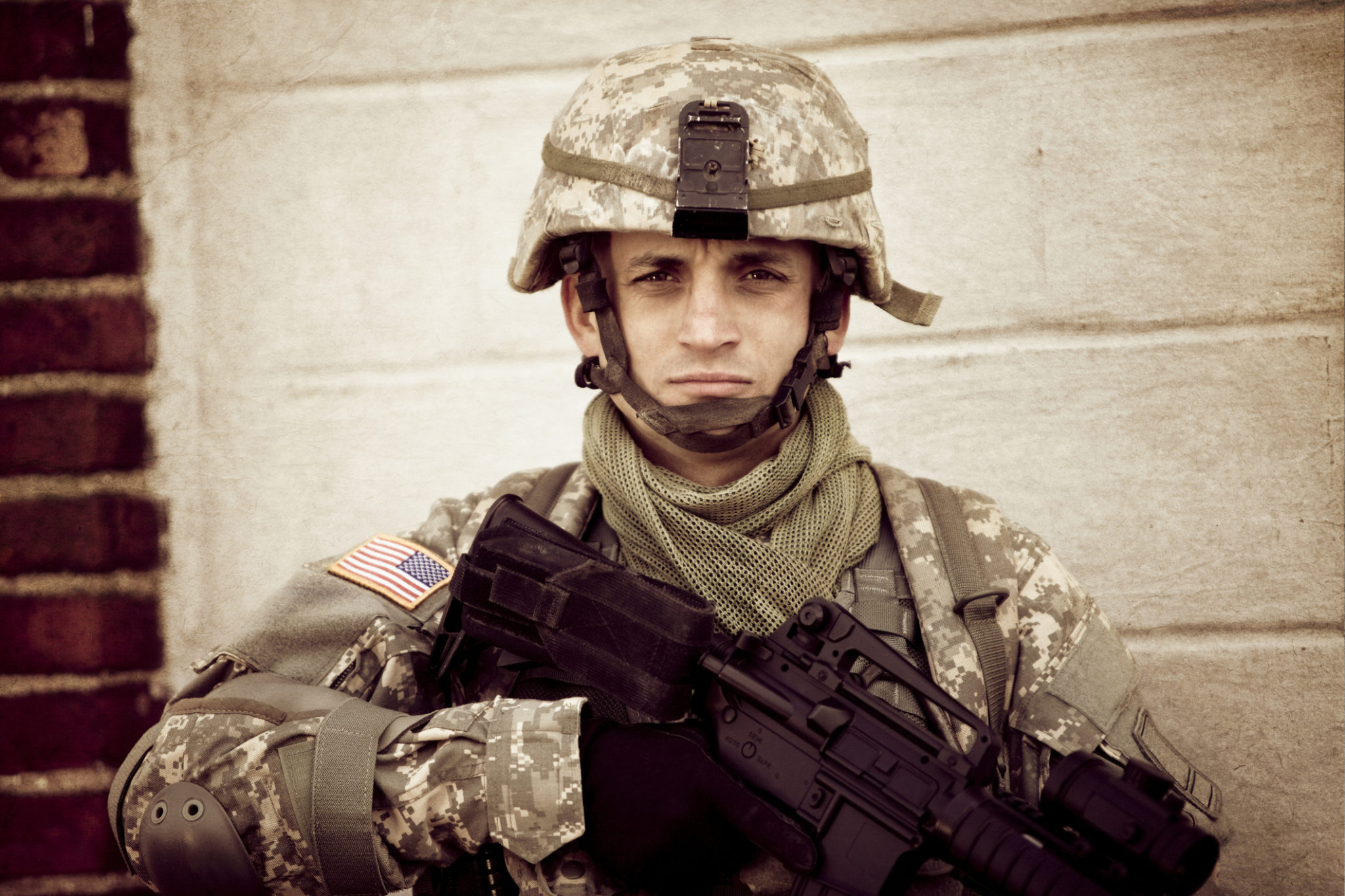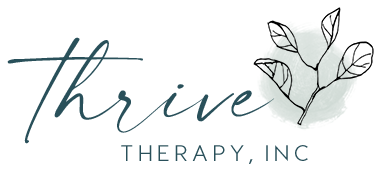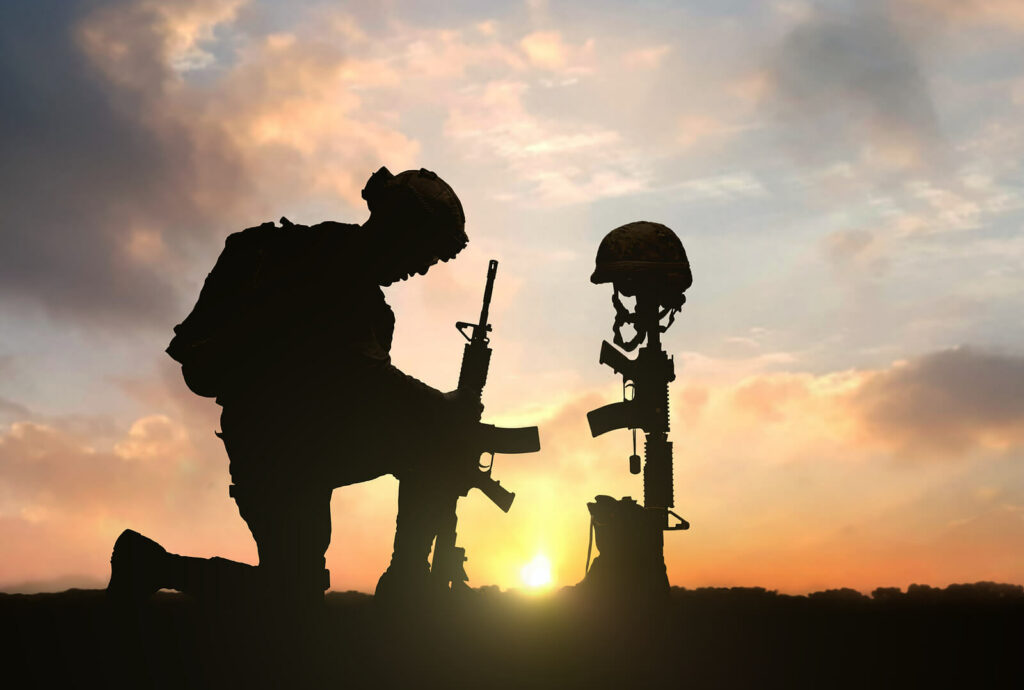
PTSD Symptoms After Combat Duty
After serving a tour or multiple tours overseas, you probably found yourself coming home to find you don’t fit in as you did before. You may find that you miss your military life, the brotherhood, the structure, and even the chaos. While some of your best memories may result from your service, it’s also possible you are harboring some of your most painful memories from your time overseas. If you are struggling with PTSD symptoms, Thrive Therapy understands and our team of skilled therapists is here to help.
I’ve had the honor of working with combat veterans for the past 11 years. My guys (and my women!) talk a lot about the constant fight that goes on inside their minds, between missing that life and also being haunted by some of the things that happened on their deployments. These traumatic events often tarnish the good memories from some of the most meaningful years of their lives.
Stuck In the Cycle of PTSD Symptoms
Some of the traumatic things you were exposed to probably faded over time. Sometimes there are events that you don’t recover from as expected. Instead, you may feel stuck. You may even go on to develop PTSD. As a combat vet, you were trained to be ready for the unexpected. When the unexpected happened, your training kicked in and you did your job to the best of your ability often without even thinking.
Ready for the Unexpected
But what do you do when the unexpected injured you or one of your brothers? Or even took their lives? There’s not really any good place to process this stuff while you’re in combat, you have to move on to the next mission. While you definitely need to keep focused on the tasks at hand, this can take a toll over time. You stuff it down, and you keep going because that is what you have to do.
Coming Home with PTSD Symptoms
Once you come home and the dust settles, these things you tried to stuff away can start coming to the surface. You do what you can to avoid it: you stay busy, you sleep, you drink, etc., but the minute you are not actively avoiding things…BAM! There it is. And, man, it sucks. Memories pop up, sleep gets all hijacked by nightmares, and you don’t really have close connections with others who will get it (or want to hear it).
You may be overwhelmed with guilt, anger, sadness, or even shame. You’re getting pissed at little things that you normally wouldn’t think were a big deal. Your head is on a swivel in public so you start to avoid anything with crowds or people because it’s exhausting, which, in turn, isolates you further. You can’t relax. You always feel “on”. You are tired of trying to run from these memories and not getting anywhere, only feeling worse. It sure as hell isn’t getting better on its own.
Exposure to Combat Increases Chances of Ongoing PTSD Symptoms
Not surprisingly, having been exposed to combat increases the likelihood of shitty things like PTSD, depression, suicidal thoughts, anxiety, and substance abuse. It’s dark, lonely, frustrating, exhausting, and maddening. And it fucking sucks.
There is Hope
Wait! I’m not just writing this to make everyone feel worse. Promise. I’m writing this because I want to let you know I get it. I also want to let you know that there are treatments that work. Hope is on the other side of this, and I can lend you mine until you get there. I specialize in working with trauma and have extensive experience with my combat vets. I’d love to meet with you and get a sense of what you’re dealing with and talk about HOW TO FIX IT.
PTSD Symptoms are Highly Treatable
That’s the thing. PTSD is highly treatable, but it will just keep getting worse if you ignore it. We can’t delete the painful memories, but we can stop those memories from messing with your everyday life now and in the future. You don’t have to feel helpless in the midst of everything, you can fight back, and you can win. This makes way for some of those awesome memories from deployment to come back into focus as well.
You are Not Alone
Please know you don’t have to deal with this alone. There are resources available, such as the Trauma Recovery Center at the Cincinnati VAMC. There you will find an outpatient and residential program available, provided by awesome clinicians highly trained in evidence-based treatments. However, for those not interested in care through the VA please don’t hesitate to contact me. Most of the time I work with my patients for about 3-4 months.
If you are having thoughts of suicide, call or text the National Suicide Prevention Lifeline at 1-800-273-8255 for free, confidential support.
Take care,
Jenn
BEGIN PTSD TREATMENT IN OHIO OR KENTUCKY
We get it, PTSD sucks and our team of skilled therapists knows it. But, it is a highly treatable condition. And, I am here to help. If you’re at a point where you are considering therapy for your PTSD symptoms, it’s probably safe to bet you’re struggling to manage day-to-day. I’m also willing to bet that you’d like some relief and to know that someone can help you find it, Thrive Therapy is here.
The PTSD therapists at my therapy practice in Ohio use evidence-based strategies to help reduce and eliminate your PTSD symptoms. Our services are available online to those in Ohio and Kentucky. If you are ready to get support, follow the steps below to get started.
-
Meet with a PTSD therapist to discuss your needs and goals for PTSD treatment
-
Take back control of your PTSD symptoms and live in the present once again
OTHER SERVICES AT THRIVE THERAPY
Here at our Ohio-based counseling practice, our therapists have an extensive understanding of PTSD. We help folks who are survivors of sexual assault and childhood trauma overcome those traumas and PTSD symptoms. Additionally, we help first responders navigate and overcome PTSD. It is our greatest honor to help those who have suffered in silence find support, connection, and recovery in PTSD treatment.



